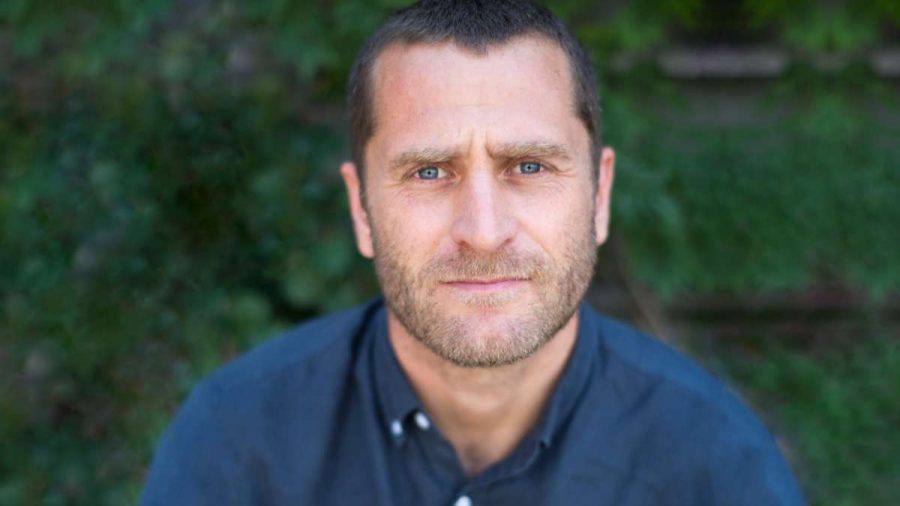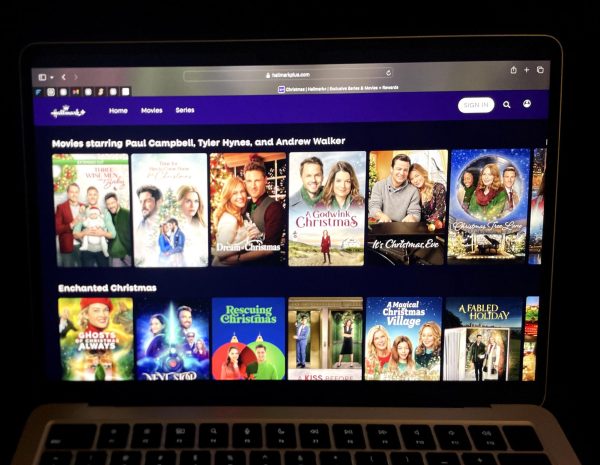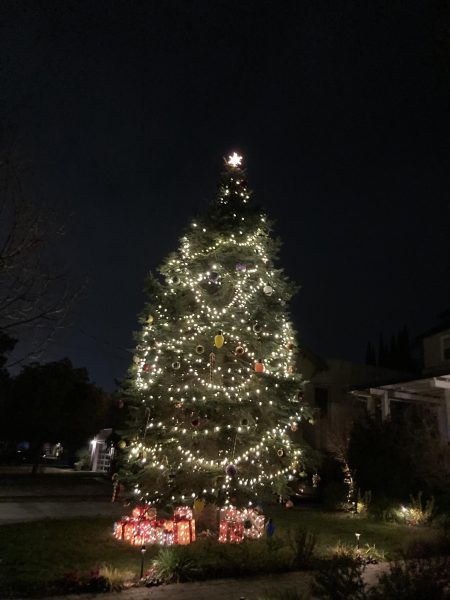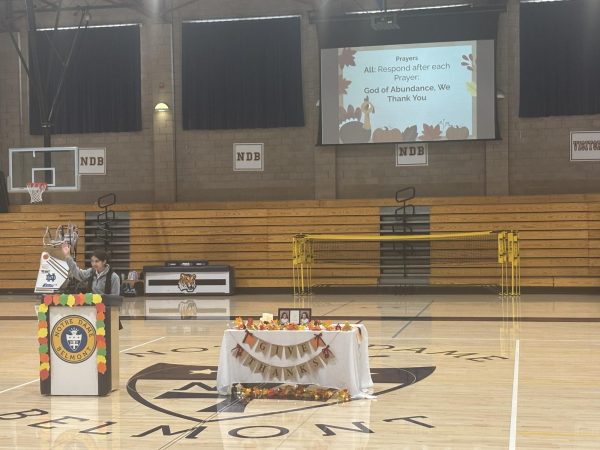Spotlight: Vice News’ Ben Anderson
Ben Anderson is an award-winning journalist, Senior Producer and Correspondent for VICE News. He has been to more countries than some have been to in their lifetimes, all but one war zone for the past 2 decades, and has interviewed members of ISIS. All of this, and the man left college at 18.
His career, however, started long before claiming a Foreign Press Award and Emmy nominations. “Long before I joined VICE,” Anderson begins, “I joined BBC. I think the first time I ever read about war reporting was the Indonesian invasion of East Timor…I was about 15, 16 years old. Greg Shackleton covered the story very well and the East Indonesian military killed him.”
The tragic death of the Balibo Five that Anderson references, a group of Australian journalists killed by the Indonesian troops, is a fate not foreign to Anderson’s current occupation. But, rather than this turning him away from war reporting, it almost intrigued him. “I knew what I wanted to do after that. It made sense for all kinds of reasons. And sincerely, it was something I could do: tell the story properly. This was something I was looking for.” After trying his hand in writing at first, Anderson quickly got word of a job offering. “A friend of a friend told me about a position, something about needing an undercover cameraman for Channel 4 to record funerals.” And after taking that job, the rest was history.
“The funeral documentary was my first ever film. I was 23 years old, I think, and I spent 5 months undercover as a funeral director.” Anderson did everything that absolutely nobody knew happened behind funeral planning.
“I was on call, 24 hours a day, and had to go to collect bodies when somebody died…I had to conduct funerals. And I had to sell funeral packages to families. I was actually trained to oversell. And, I was in the back, preparing the bodies for the funeral…I filmed the disrespect towards the bodies. So it was actually an exposé of the industry, which is one of the few industries which still has the public’s trust…you would think it’s a family business but they were running it like a massive worldwide corporation. They were making billions of dollars.”
Strangely, the work he did–undercover cameraman for months on end, dead bodies, exposing harsh truth–foreshadowed what came next in his career. Anderson’s work for the UK’s Channel 4 hit show, Undercover Britain, won him the Rory Peck Award. He gained the name recognition and connections that led him to work for BBC for 13 years, focusing primarily on international conflict. Even something as lighthearted as covering sports or holidays turned into films for BBC titled Frontline Football, documenting teams from turmoil-struck countries or Holidays in the Danger Zone, which included Anderson visiting George W. Bush’s “Axis of Evil” and several other war and conflict-stricken countries.
To put it shortly, the man has covered some pretty gruesome stories. “I’ve been to Iraq, Afghanistan, Syria, Libya, Congo, Liberia, Pakistan, Central African Republic, Nigeria, Sudan, Niger…I mean dozens of others. Basically every warzone over the past 20 years except Somalia. That’s the one I haven’t done.”
If you’ve seen his documentaries, you know some of the worst things he has been through: being held captive in Iran, experiencing close encounters with ISIS, documenting alone in Afghanistan. If you haven’t, just imagine being in the midst of any civil war, bodies dropping dead in front of you, innocent civilians being imprisoned and tear gassed, and on top of all of that, trying your best to film and make a documentary out of it all.
So you can imagine how frustrating it can be for a man whose work relies on proper coverage and representation of the story to feel that the media isn’t doing its job–not anymore, at least.
“The media is focusing much less so now on solving the issues. Take Kony 2012, for example.” Anderson refers to the documentary film that went viral, revealing Ugandan military and cult leader Joseph Kony to the global eye. “How many people know that Kony is still loose? [The documentary] raised awareness about him but didn’t actually lead to his arrest…Syria is the best covered war on the planet. Have we collectively stopped bombs from dropping?” And what seems to be subduing any process towards conflict resolution is the media’s battle against fake news. Comparing the back and forth arguments from biased and misinformed press coverage to a soccer game, Anderson said, “You’ll scream at the referee even if it was a foul.”
Commenting on his personal experiences and hardships with media, Anderson said, “The internet is supposed to lead to a free flow of information and yet I have never had to deal with so many conspiracy theories to what we have now…we are dumber than we have ever been despite all this information we have. And that is really frustrating.”
What could solve it? In Anderson’s opinion, “A great book could really change the world and situation.” Opening up on his love for literature, Anderson’s all-time favorite is George Orwell’s Homage to Catalonia, unsurprisingly the author’s personal account of the Spanish Civil War. As the list goes on, parallels are easily spotted between Anderson’s literature picks and the work he does. Almost all are journalists, including Ryszard Kapuscinski, known by Anderson for his books, The Shadow of the Sun, Another Day of Life, and The Soccer War. He enjoys Martha Gellhorn’s war reporting and is drawn to Christopher Hitchens: “I used to love him just because he was such an original free thinker.”
As a high school student talking to a man she regularly watches on television, I could not help but ask what I could do to be like him. And his answer left me with some relief. “If you’re going to be a great journalist then I think you have all the attributes already: curiosity, endurance, empathy.” But it was his answer on whether his education shaped his work that left my high school mind on the edge. “If you’re actually willing to go to different places, build relationships with people, listen to them, that’s more important than any education.”
While he is rarely ever in one place, Ben Anderson can regularly be found on “Vice News Tonight” with his most recent documentary on children in the Central African Republic being kidnapped and turned into soldiers. His upcoming piece on drug trafficker violence returning to Rio after the Olympics airs Friday, September 21 7:30/11:00 pm on HBO.
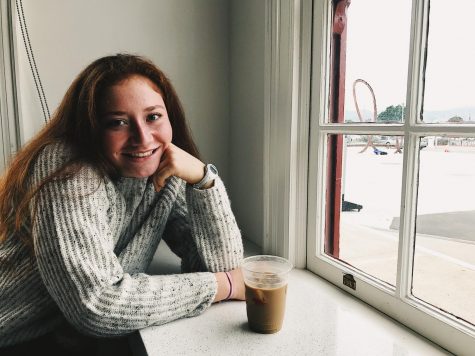
Michelle Kleytman is a current senior and member of the Titan class of 2019. Working as Managing Editor, Michelle oversees the newspaper's publishing operations,...

